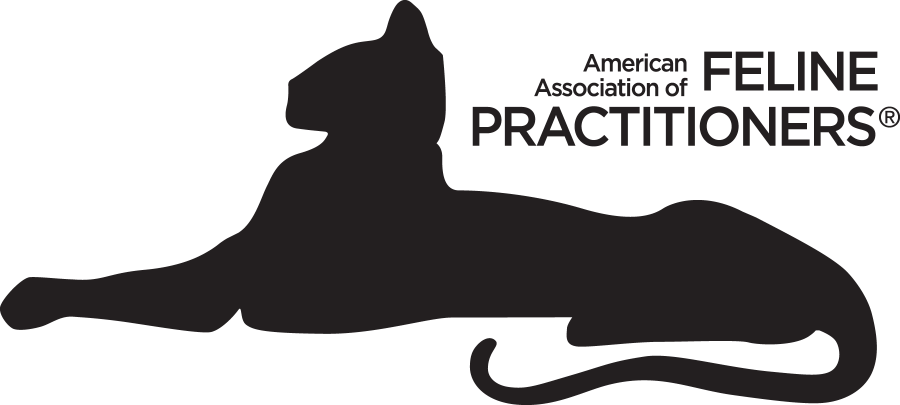SOME FREQUENTLY ASKED QUESTIONS
Q:How do you introduce a dog to a new baby?
A: “Very gradually” is the hallmark of introducing a dog to a new baby. Allowing your dog to have access to the area the baby will be kept in even before the baby arrives allows the dog time to get used to the new surroundings and can reduce stress later. This area should not become an area that the dog may consider her own and later be possessive of. When the baby is at the hospital, bring home blankets or towels or clothing that have the baby’s scent on them and allow your dog to become accustomed to the scent. When the baby comes home, remember to make the introduction very gradually. Your dog should get used to the baby’s smell, sound and appearance from a distance at first. Introductions should be carefully controlled and your dog should be able to be removed right away should she become agitated, fearful, or show any threatening behavior. NEVER leave a baby unattended with a dog!
Q: How do you stop a dog from digging?
A: Historically dogs likely dig to uncover prey and other edibles. Digging can also create a temporary cool den area in which to lie. Many dogs today enjoy digging just for the enjoyment of the activity. It helps provide a lot of exercise they may not otherwise be getting. To stop a dog from digging, it is necessary to be present at all times when the dog is outside. Keep him away from, or block off problem areas. Most importantly help him expend his energy in other ways, such as with long walks or runs, or chasing a ball. If all else fails, supplying an acceptable digging area, such as a sandbox, may help prevent digging in unwanted regions.
Q: Why do dogs eat grass?
A: No one is positive of the actual reason for dogs to eat grass. I feel that some dogs just enjoy the taste and moisture. Most dog owners have experienced their dog vomiting after eating a lot of grass. As many dogs have the habit of eating things they shouldn’t, this behavior may have developed to allow dogs to get rid of contents of their stomachs that are making them feel ill. This would likely improve the odds of survival for those with this behavior. I feel it is unlikely that they eat grass due to a need for nutrients, as even very healthy dogs on excellent diets will do it.
Q: How do you clean a dog or cat’s ears?
A: Dogs’ and cats’ ear canals are shaped like an “L”. When you look into your pet’s ear, you only see the very upper portion of that “L”. The ears should be cleaned with a solution made specifically for that purpose. Ask your veterinarian for his or her recommendation of an otic (ear) cleanser. Enough fluid should be introduced to the ear to fill the canal. The ear should then be massaged so that you hear a “squishing” sound. Let your pet shake. Be careful not to get the wash in your eyes. It stings. Next, wipe out the ears with a cotton ball. Don’t use cotton swabs as they can damage the lining of the ear. A video demonstration of how to flush a pet’s ear can be found on our you tube page.
Q: Do dogs dream?
A: I certainly believe they do. Not only do their vocalizations and body movements look like they are dreaming, but they have been found to have brain waves similar to dreaming people during these episodes.
Q:Why do dogs have wet noses?
A: A dog’s nose will usually vary from wet to dry during different times of the day. The fluid should be clear. Brown, red or green fluid is abnormal and if present, the pet should be seen by a veterinarian. Like a mini air conditioner, a dog’s wet nose helps to cool him off as he breathes in and out. It’s believed that the wet nose also aids the dog’s sense of smell by capturing chemicals from the air. It is thought by some that when the dog licks his nose he transfers these chemicals to the roof of his mouth where they are detected by special scent glands.
Q: Why do dogs howl?
A: Dogs vocalize for the same reasons people do: communication, distress, and for fun. Dogs use howling to communicate with other dogs, as their wolf ancestors would. We have all heard one dog in the neighborhood start howling and pretty soon there are two or more joining in. They also may be trying to communicate with their human partners. The howling stressed dog with separation anxiety may be just expressing his distress or may be signaling to let his owners know where he is so they can find him. Some dogs just seem to enjoy the behavior, such as those that like to “sing” along with their human. I’m sure many dogs receive some positive reinforcement for this type of playful behavior.
Q:Why do dogs have whiskers?
A: Whiskers serve a sensory purpose for dogs. They can feel air currents, vibrations and of course touch. For this reason, it’s recommended to not trim or remove dogs’ whiskers. Dogs also communicate certain emotional states by adjusting the alignment of their whiskers.
Q: Why do dogs chase their tails?
A: Puppies may chase their tails because they see them moving in their peripheral vision and haven’t figured out that they are part of their bodies yet. To them, it is probably just a tempting play thing. Adult dogs may spin around after their hind end if there is some discomfort back there, such as with an injury or anal sac infection. If the behavior is recurrent, they should be checked by your veterinarian. Chronic tail chasing can be a behavioral problem. Dogs can develop obsessive behaviors, such as tail chasing, which may need to be treated with medications.
Q:When should a puppy/kitten be spayed/neutered?
A: Cats are normally spayed or neutered at six months old. It is now recommended to spay and neuter dogs (especially large and giant breed dogs) at one year old. This gives their bodies more time to mature and may help reduce the likelihood of joint problems when they are older.
Q:When do puppy teeth fall out?
A: Between 4-6 months.
Q:When should a puppy/kitten receive their first round of vaccines?
A: 6-9 weeks of age.
Q:How often should my pet have their physical examination?
A: All pets should be examined every six months by Dr. Johnson. Pets age much quicker than humans. Your pet being seen once a year is comparable to us being seen every seven years by our doctor. A six-month check-up is the best way to keep your pet as healthy as possible. It is much easier to prevent disease than to treat it.
Q: How can I obtain a copy of my pet’s previous medical records?
A: Call your vet’s office, and they can print a copy of your pet’s vaccine history. If you need a copy of all medical records, lab work, etc. There is a small fee to cover the cost of duplication.
Q: Do I need an appointment for the Dr. to see my pet?
A: To keep Dr. Johnson on schedule and to avoid our clients having to wait, we do require that you called to schedule an appointment with us for your pet. We will see emergency appointments during our office hours as long as Dr. Johnson is not in surgery, so please call ahead. Our office hours are Monday 8:30 AM to 8 PM Tuesday Wednesday Thursday and Friday 8:30 AM to 5 PM and Saturday 8:30 AM to 2 PM. The schedule can change based on continuing education meetings, weather, and other reasons, so always call first to make sure we are in the office and available.
Q: We would like to board our pet with your clinic. What is required to be done prior to their stay? What should we bring with us for our pet while they are boarding?
A: Dr. Johnson requires an exam be done within six months of your pet boarding with us. Dogs and cats must be current on both rabies and distemper vaccines and fecal check. Dogs must also be up to date on their Bordetella vaccine. All pets must be on monthly flea prevention to avoid spreading fleas to other pets in our clinic. We encourage you to bring your pet’s food with you to prevent stomach upset, but we do have food we can feed them in the clinic at no additional cost. If your pet is on any medications, it is very important to bring them as well. There is a daily medication charge.
Q: If I neuter my cat, will he stop spraying?
A: When a cat sprays, he is exhibiting the male tendency to mark his territory with urine. Neutering decreases his male hormones and makes him much less likely to exhibit this behavior but doesn’t guarantee he will stop.
Q: My dog has been scooting his behind on the ground. Does he/she have worms?
A: While your pet could have worms, scooting is usually an indication that your pet’s anal glands are full and need to be expressed. Anal glands are small sacs on either side of the rectum. It is necessary to empty these because when fluid fills up in the anal sacs and sits in there, it can dry up and become impacted then infected. Also, it is important for the doctor to empty these to feel for any lumps or bumps as pets can potentially get nasty cancer in their anal glands. Dr. Johnson checks the anal sacs at every 6 month exam, but some pets need their anal glands expressed more frequently.
Q: If my pet receives a deworming medication, why is it still necessary to check a stool sample?
A: No single de-wormer treats for every parasite. Also, to check for other parasites such as coccidia and giardia, which are not killed by common de-wormers.
Q: I give my dog their heartworm preventative every month. Why do I need to have a heartworm test done annually?
A: As human error happens at times, occasionally the preventative may be given a couple days late. There is also the chance of the dog vomiting the pill after taking it or rubbing off the topical medication. It is dangerous for your pet to have heartworm prevention if they are heartworm positive. For this reason, annual heartworm testing is required to refill your pet’s heartworm prevention. Also, our heartworm test at Birdneck Animal Hospital includes the tick-borne screening too which test for four different tick-borne diseases.
Q:My pet is scratching a lot, but I don’t see fleas. What could be causing the itching?
A: There are multiple causes of itching in pets. Fleas are most common and are often difficult to find on your pet. All it takes is for one flea to bite your pet, and if your pet has a flea allergy, this can cause them to itch. Allergies cause itching in cats and dogs. Other parasites can be responsible as well.
Q:Why is preventative care so important for senior pets?
A: Our pets maintain the survival instinct to not act sick for as long as possible. In the wild, this would protect them from becoming preyed upon. Therefore, they often hide an illness until it has progressed into a critical condition. It is crucial to the health of your senior pets to have them examined by Dr. Johnson at least every six months. Senior screening such as blood work, x-rays, EKG, urinalysis, and blood pressure is very important for older pets. This work up is recommended for all senior pets on an annual basis. Many conditions are treatable and manageable if discovered early.
Q: Why do I need a fecal test if I do not see any worms in my pet’s stool?
A: An intestinal parasite screen and a giardia lab test should be run every six months. Unless a pet has a huge “worm-load”, it is only the microscopic eggs that are passed in the stool. These eggs contaminate the environment and can, therefore, re-infect your pet and possibly even you. Some of the parasites we are checking for are microscopic even in their mature phase. They require specialized laboratory test to confirm infection. Submitting a stool sample for analysis every six months is an easy way to help reduce the likelihood of you or your pet becoming ill from intestinal parasites. Because intestinal parasites do not constantly reproduce eggs, it is possible to have a negative stool sample test, and there still be worms in the intestines. Because of this and the potential for human transmission of some of these parasites, we recommend a broad spectrum deworming treatment every 6 months. This de-wormer does not kill all the potential parasites, though, so the stool sample tests are important.




